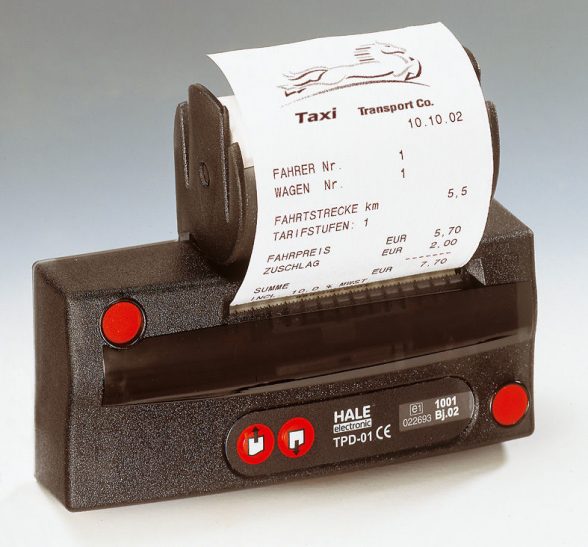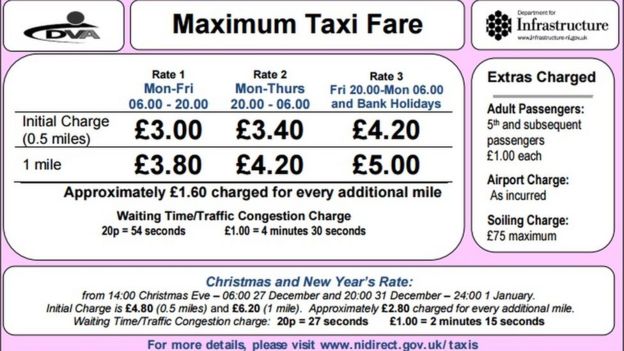 A group representing some taxi companies in Derry says fares will remain affordable despite the introduction of meters in cabs,
A group representing some taxi companies in Derry says fares will remain affordable despite the introduction of meters in cabs,
New rules came into force at the weekend requiring all taxis in the North of Ireland to have a meter to set and record fares.
One taxi driver said the system will vastly improve working conditions.
However, an advice centre manager said she was worried about the impact of an increase in fares.
“Some fares in this town haven’t gone up in over 15 years, which is totally wrong,” taxi owner Martin McCool told BBC Radio Foyle.
Taxi operators in the north-west have used a charge sheet to calculate fares up until now.
A standard journey within the city, about one mile, would cost the customer an average of £3.
“Sure you give the kids £3 to go into the shop for sweets,” said Mr McCool, “People think that you’re sitting here raking in all this money, you’re not.
“Taxi drivers in Derry are generally doing 80 to 90 hours per week.
“They’re actually doing two weeks work in a week just to make a living which is absolutely disgraceful.
“These meters will cut down on those hours and hopefully we’ll make a living out of it, so everybody’s happy,” he added.

Meters and printers became compulsory for all Class A and Class B taxis in Northern Ireland at the end of May 2016.
However, full enforcement of the new law was delayed in order to give drivers more time to arrange fitting and testing of meters at the Driver Vehicle Agency.
Those who cannot provide evidence of having booked this before 1 October were at risk of a £120 Fixed Penalty Notice.
North West Taxi Proprietors spokesperson Eamonn O’Donnell has said prices will remain affordable.
“Half to two-thirds of taxis now have meters installed, but not everybody will have the approved customised fare,” Mr O’Donnell said.
“Every individual taxi driver could have their own fare but each company will have their own customised fares.
“So for some companies, there will be a moderate increase, for some individuals, they may wish to charge more.”
Infrastructure Minister Chris Hazzard said that, for the time being, his department would be using a “light touch” approach to regulation.
“The rational behind meters and printers is to protect customers from overcharging and make the process of paying much more transparent,” he said.
“It also protects drivers from claims of overcharging. What we need is a standardised industry and I think they accept that,” he said.
Tags:




